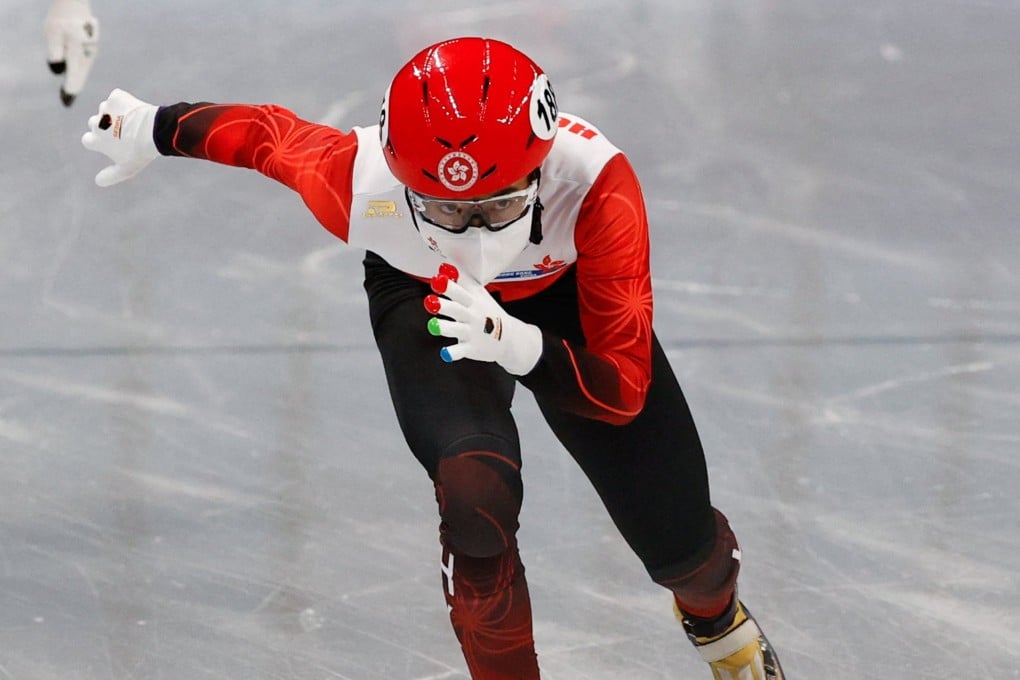Winter Olympics: Hong Kong’s plans for a top-class ice rink ‘a gift’ and ‘leap forward’, short-track speedskaters say
- ‘It’s definitely worth the investment and shows other countries … we are still able to produce world-class winter athletes,’ says Beijing Games competitor Chu
- ‘Skaters could actually reach the speeds they need to perform at and it would make training much more accessible’, says Hong Kong’s first Winter Olympian Ren

Hong Kong Olympic short-track speed skater Sidney Chu shared his delight and relief after learning of the government’s plans to build its first international standard ice skating rink.
“I was like ‘damn, what has been coming out of my mouth like a broken record for the past 10 years, and 20 years coming out of everybody else’s, is somewhat coming true’,” said the 22-year-old upon hearing the news from National Olympic Committee president Timothy Fok Tsun-ting on Wednesday.

“There were always rumours before, but never an actual government person who would really speak about this. It’s just great.”
While certain factions of the community will be raising their eyebrows at the prospect of a rink in suburban New Territories, Chu explained how symbolic it would be.